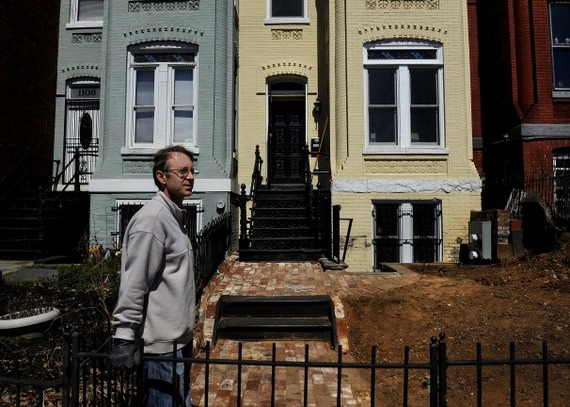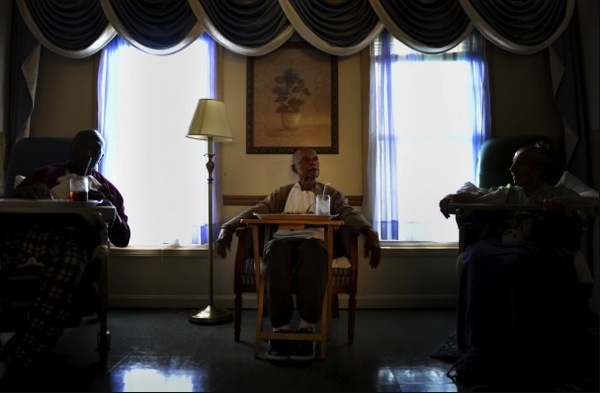Notes
Guns vs. Butter: DC Poor Lose Homes As Syria Debate Drowns Out All

Take a good look at James Schneider. He’s a citizen investor who scooped up this house on Capitol Hill — of all places, right? — in collusion with local government. In an investigative report and accompanying slideshow, WAPO details how poor homeowners, many old and sick, are losing their Washington houses over often shockingly small outstanding tax bills. It’s the result of a District program that allows opportunistic investors to acquire tax liens, drive up the owner’s tax obligations, then force foreclosures. In most cases, WAPO points out, these are houses owned free-and-clear.
The man featured in the story, Bennie Coleman — a Marine Corp vet suffering from demensia — lost his home over a $134 property tax bill. Photographed by WAPO’s Michael Williamson, a beacon in the traditional media for his consistent focus on human rights and social justice, known also for his extensive travels and documentation through small towns and large, this story is strikingly relevant for several reasons:
Whereas the media ran a respectable number of home repossession stories during the mortgage crisis and The Great Recession, this feature also highlights the drop off in media attention to economic disparity and abuse.
It’s also ironic this story surfaces simultaneously with the publishing of Mark Leibovich’s “This Town,” chronicling the out-of-control narcissism and partying in DC and the deeply incestuous relationship between the government, corporate lobbyists and the media in America’s richest city. Not only is the story indicative of the lack of attention to economic fairness and justice but the paucity — as the party rages — of the coverage of the poor and middle class.
Right this minute, what this story also highlights is the skewed application of ” homeland security” and the deeper meaning of “national interest.” In the face of Mr. Coleman and the loss of his home over $134, as sanctioned by the District, this blip of a coverage speaks loudly as a counterpoint to the amount of oxygen given over to the debate in DC and the media over war with Syria, not to mention the staggering number of dollars potentially involved.
Besides the shot of Mr. Schneider above, a potential poster boy for the end of the recession and business-as-usual, these two other photos stood out from the slideshow. Curious to me is the relation of the men to the furniture. In this photo, we see Mr. Coleman — now living in a group home — seated before a tray but looking like he’s been placed in the stocks.


As a companion, we see a photo from 2009 of D.C. Attorney General Peter Nickles. According to the caption, Nickles sought an injunction at the time against one of the largest predatory tax-lien players. The case remains tied up in court. If they are drastically different pictures, the fate of reform — as it relates to the furniture and Mr. Coleman — is like a distinction without a difference.
(photo 1 and 2: Michael S. Williamson / The Washington Post caption: Tax lien purchaser James Schneider defends the industry, saying it helps local governments recoup lost tax revenue. He has been renovating a house on Capitol Hill that he obtained through foreclosure when the former owner didn’t pay the bills. caption 2: After Coleman lost his house, the court appointed him a conservator. “He has dementia,” said attorney Robert Bunn. “He did not understand the ramifications of what was going to happen to him.”. photo 3: Katherine Frey / The Washington Post caption: Though the District has emerged as a hotbed for the tax lien industry, city leaders have imposed few protections for struggling homeowners. In 2009, D.C. Attorney General Peter Nickles sought an injunction to curb the “predatory” practices of one of the largest tax-lien purchasers in town, but the case is still ongoing.)


Reactions
Comments Powered by Disqus